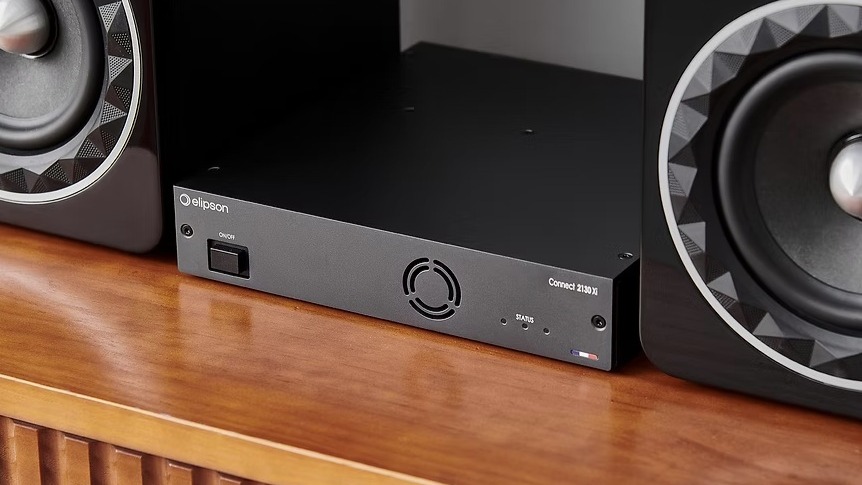I'm an AV expert, here are the most exciting TVs I saw at CES 2025
OLED, Mini LED and Micro LED all shone at the Las Vegas Convention Centre
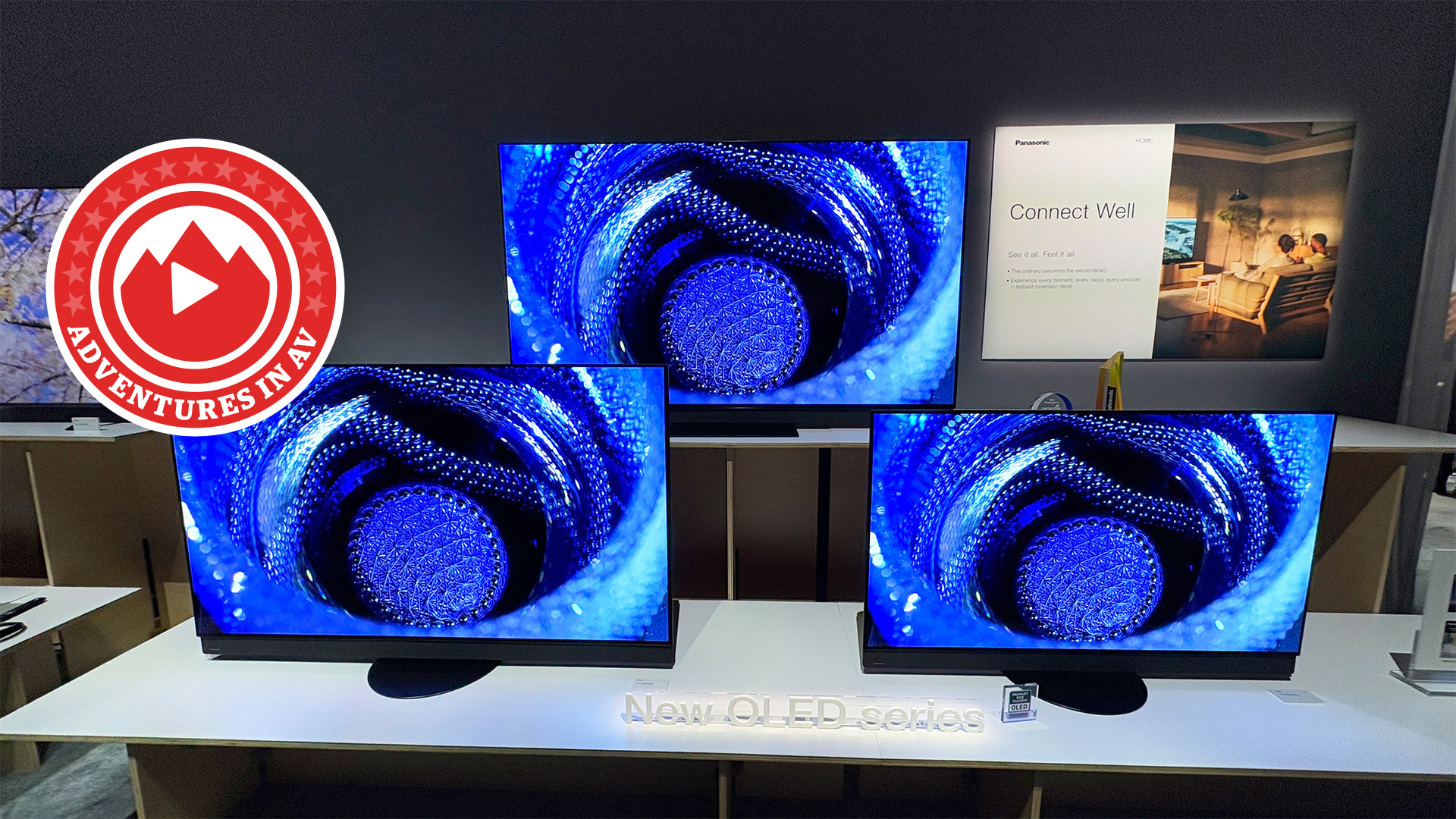
I’ve been on the ground at CES 2025, scouring the show for the latest and greatest TVs I can find. With practically all of the major players showing off new models, including LG, Panasonic, Samsung, TCL and Hisense (Sony and Philips being the absent parties from that list), there are so many new models to get excited about.
There are OLEDs with brighter panels than ever before, intriguing new 8K TVs that promise to deliver immense upscaling to sharpen up practically any content, and goliath TVs stretching from 115 to 163 inches that require a seriously spacious living room. There have been a few noteworthy developments too, such as MLA-OLED being dropped in favour of a new Four Stack OLED structure, and there’s also been a huge advancement in the world of Mini LED thanks to the new RGB MicroLED (or RGB Mini LED depending on which company you ask) panel technology.
I’ve even seen MicroLED TVs that will reportedly be commercially available for people actually to buy. While they will still make your wallet tremble in fear, it’s a step in the right direction.
While I’d love to say that every TV I’ve seen over the past couple of days is special in its own way and worthy of a spot on this list, I’ve decided to whittle things down to just five new models; one from each of aforementioned brands that we visited. Each model on this list brings something different and unique to the table; be that a specific type of panel technology or a unique design feature that will turn heads.
1. Panasonic Z95B
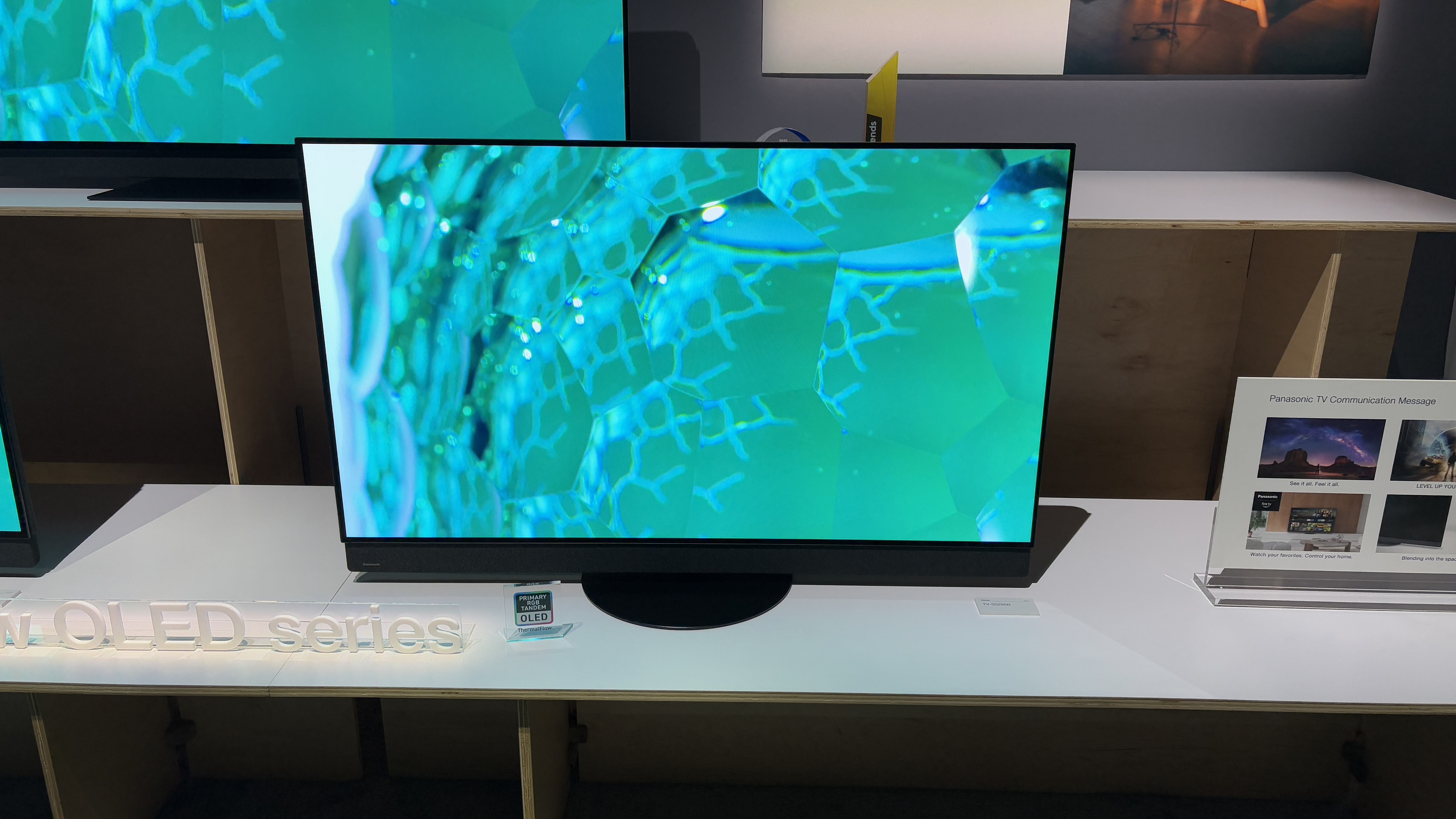
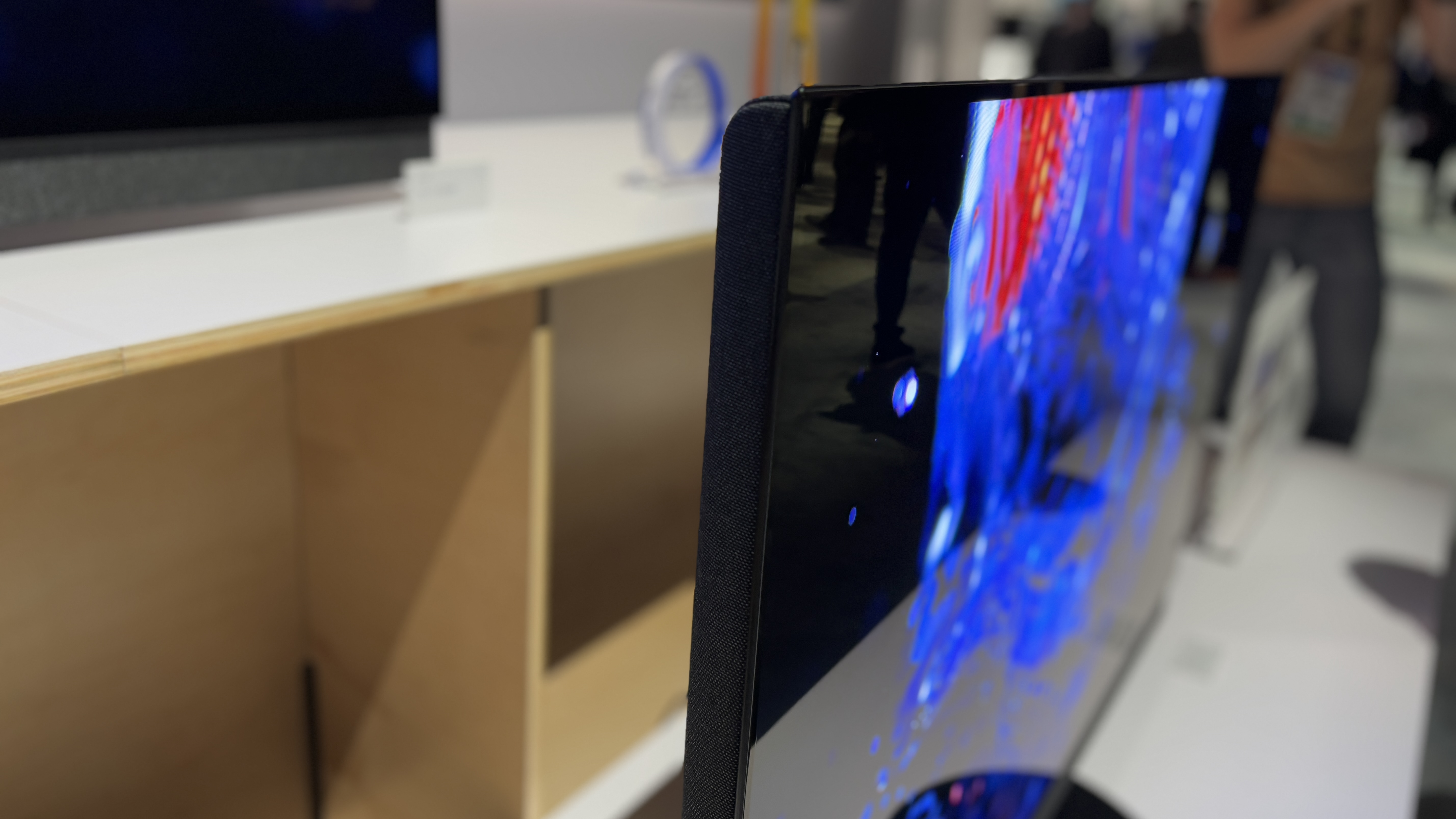
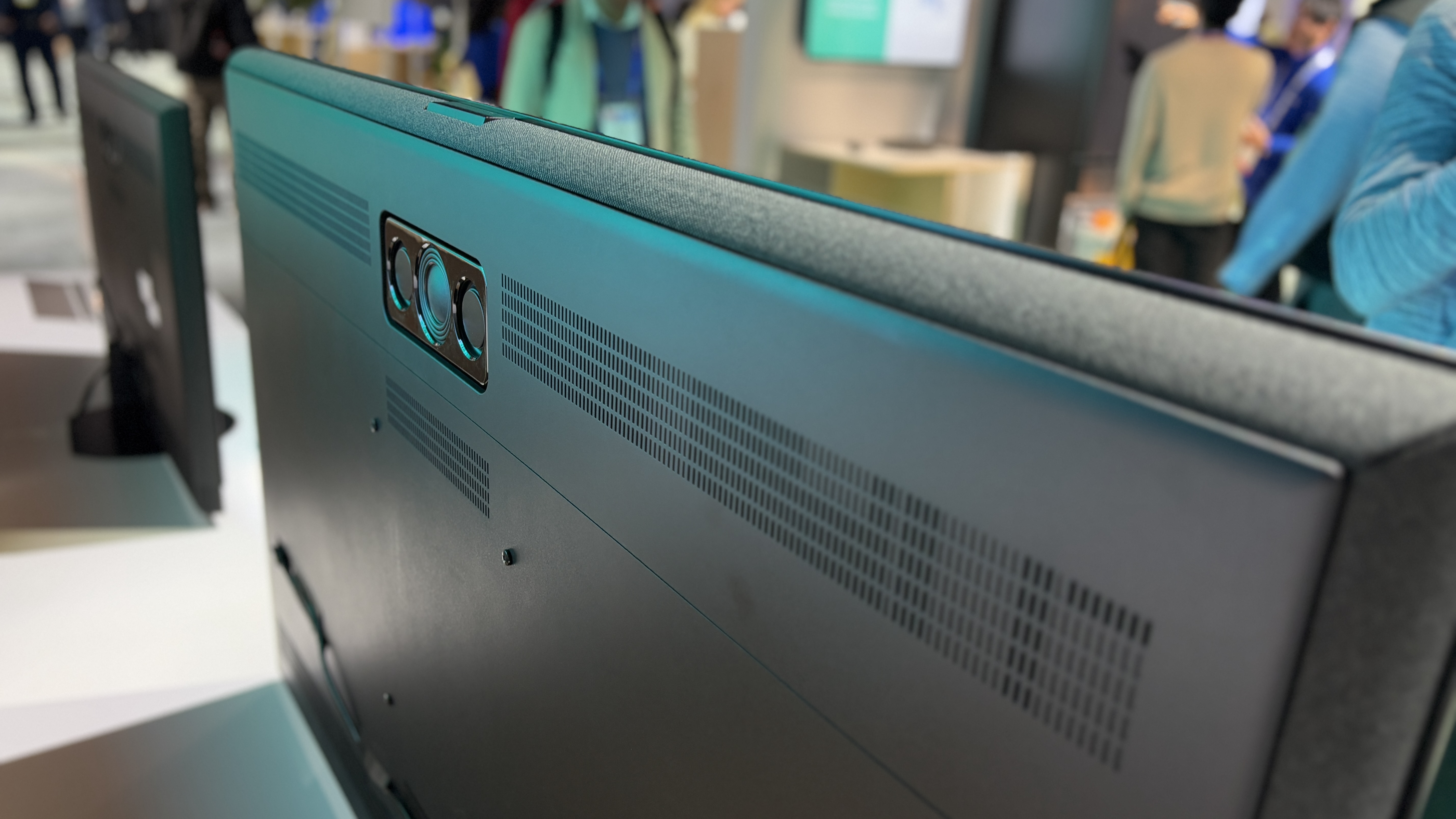
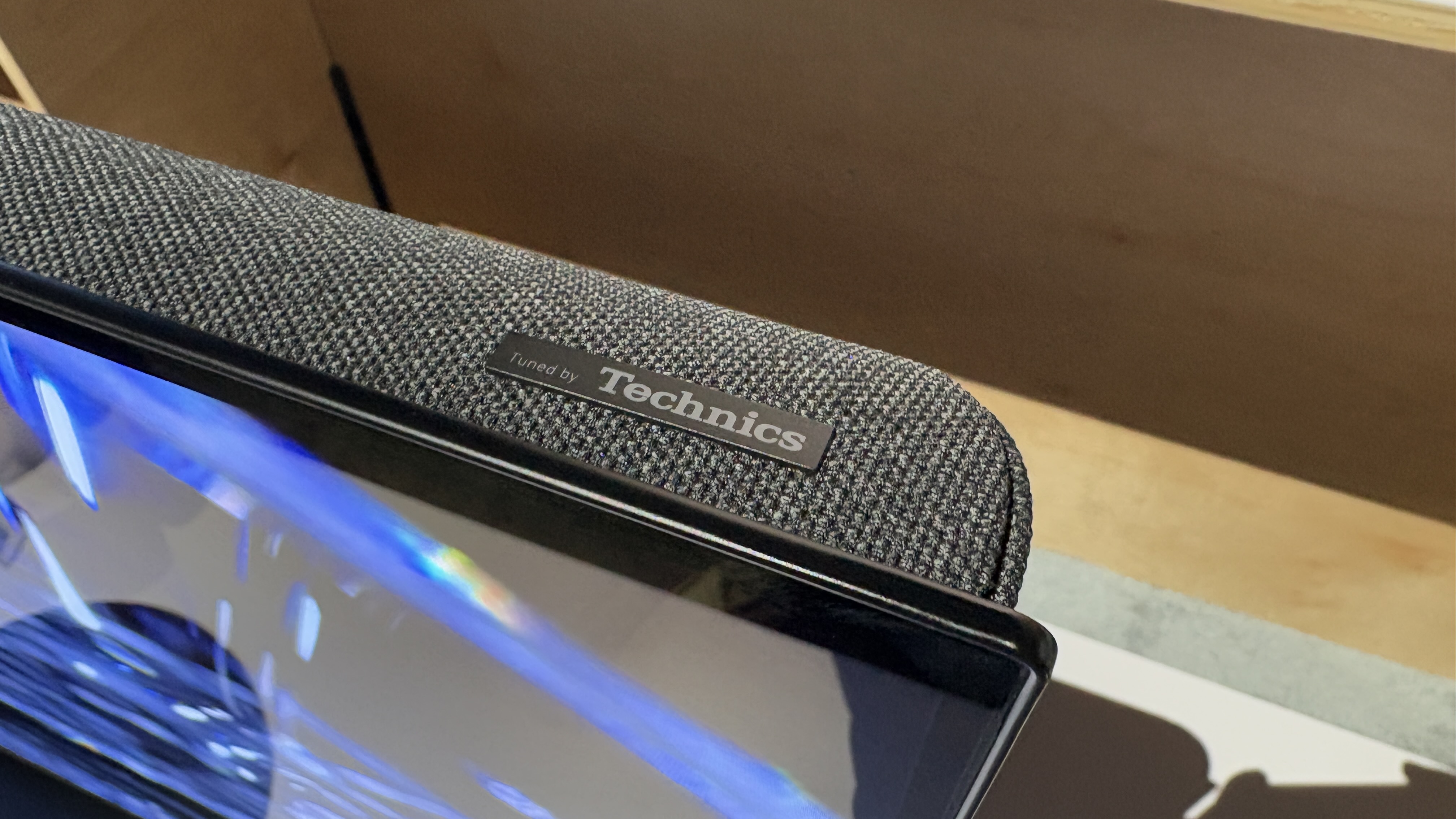
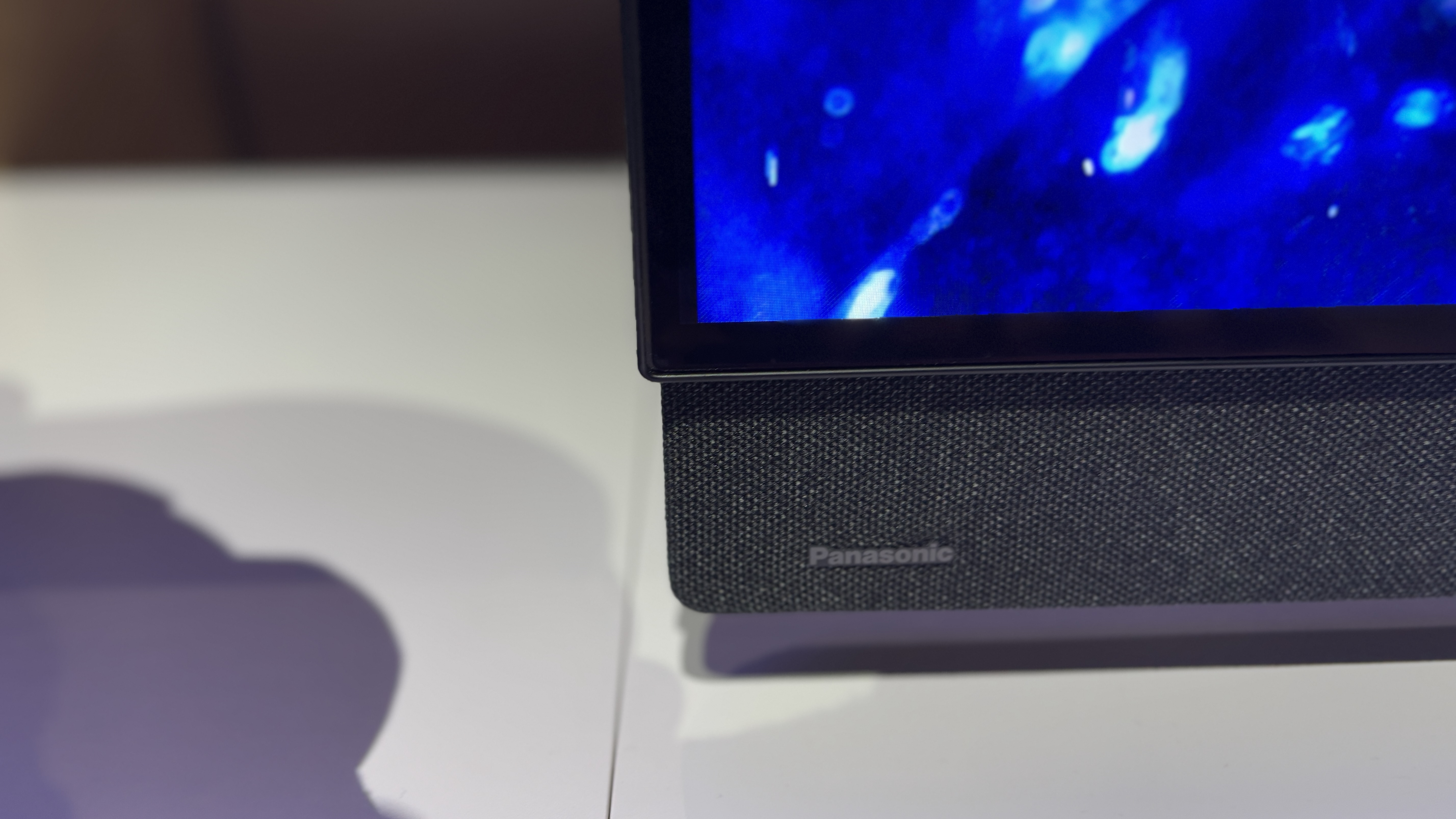
After a re-brand last year and a fresh fire in its belly after returning to the United States after a 10-year hiatus, Panasonic has pulled out all of the stops with its latest flagship OLED TV.
This might not be the flashiest or most exciting model to kick a list of crazy new TVs off with, but it's the one I’m most excited to get into the TV testing room for a full review. Panasonic has a penchant for delivering exceptional OLED TVs that nail the whole “as the director intended” approach thanks to excellent picture processing, and the Z95B appears to continue this tradition.
It features a new (and might I say rather suave) design, a Primary Tandem RGB OLED panel that utilises the new stacked panel architecture, a heavily remodelled and upgraded sound system, and a more powerful processor to round things off. This is basically a new TV built from the ground up, and I like everything I’ve seen so far. Panasonic has even outfitted it with a new cooling system that it says was “inspired by F1 racing cars”, and the new 165Hz refresh rate with VRR and Dolby Vision Gaming support should appease hardcore gamers (though I wish there were more than two HDMI 2.1 sockets).
Get the What Hi-Fi? Newsletter
The latest hi-fi, home cinema and tech news, reviews, buying advice and deals, direct to your inbox.
The Z96B looks like another talented and cinematic OLED TV from Panasonic, and it’s one that simply had to make my list.
2. Samsung QN900F
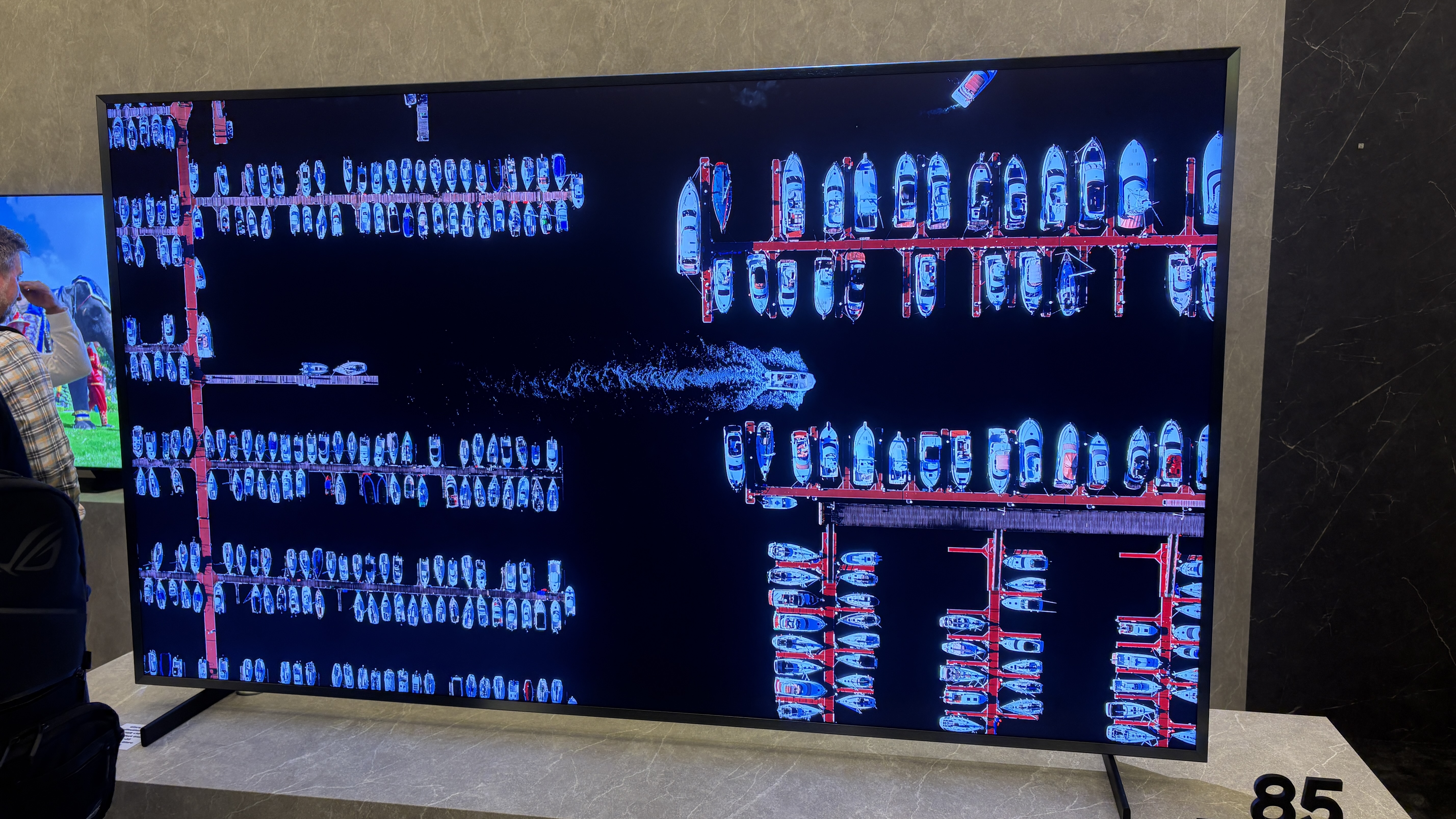
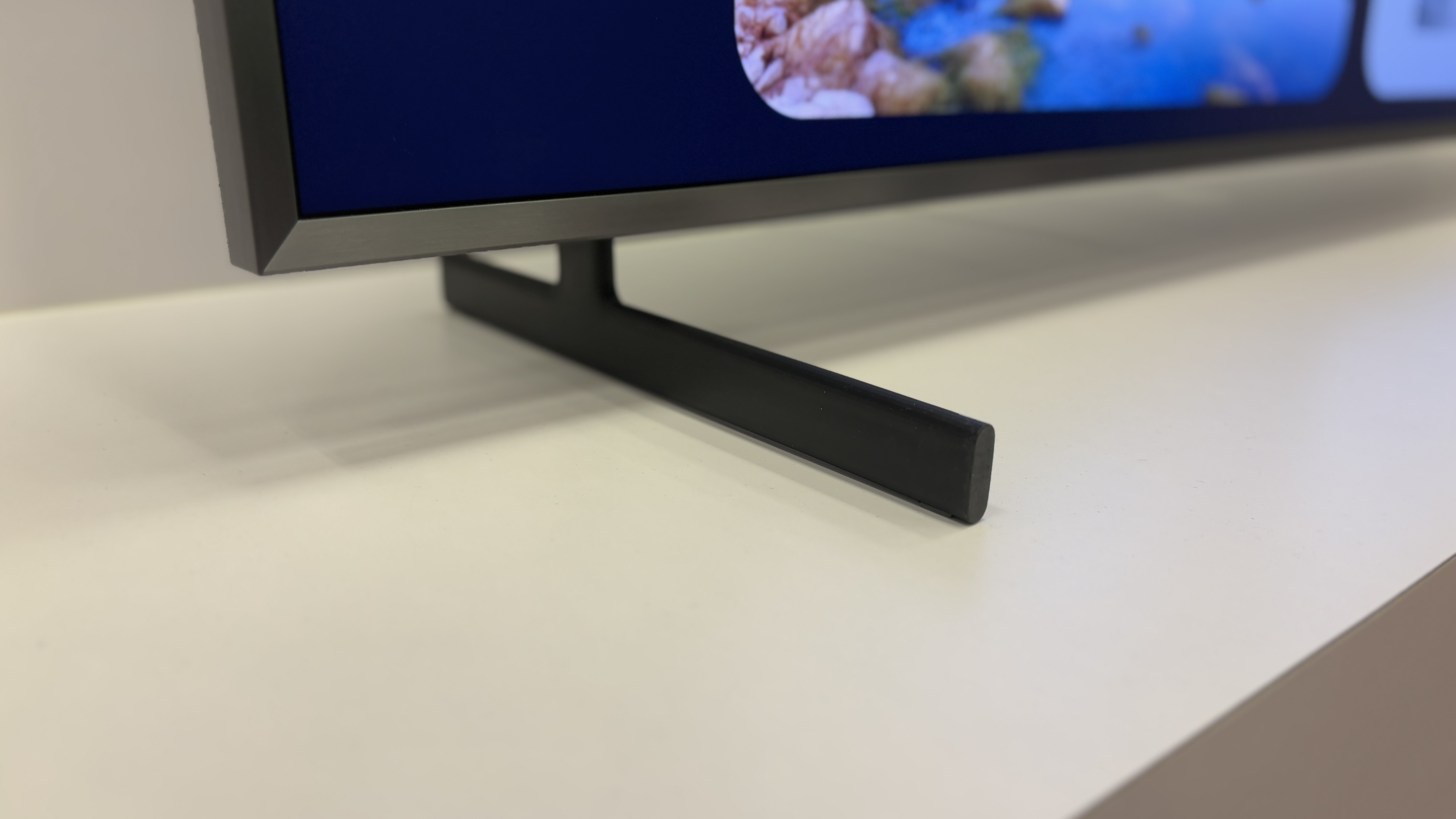
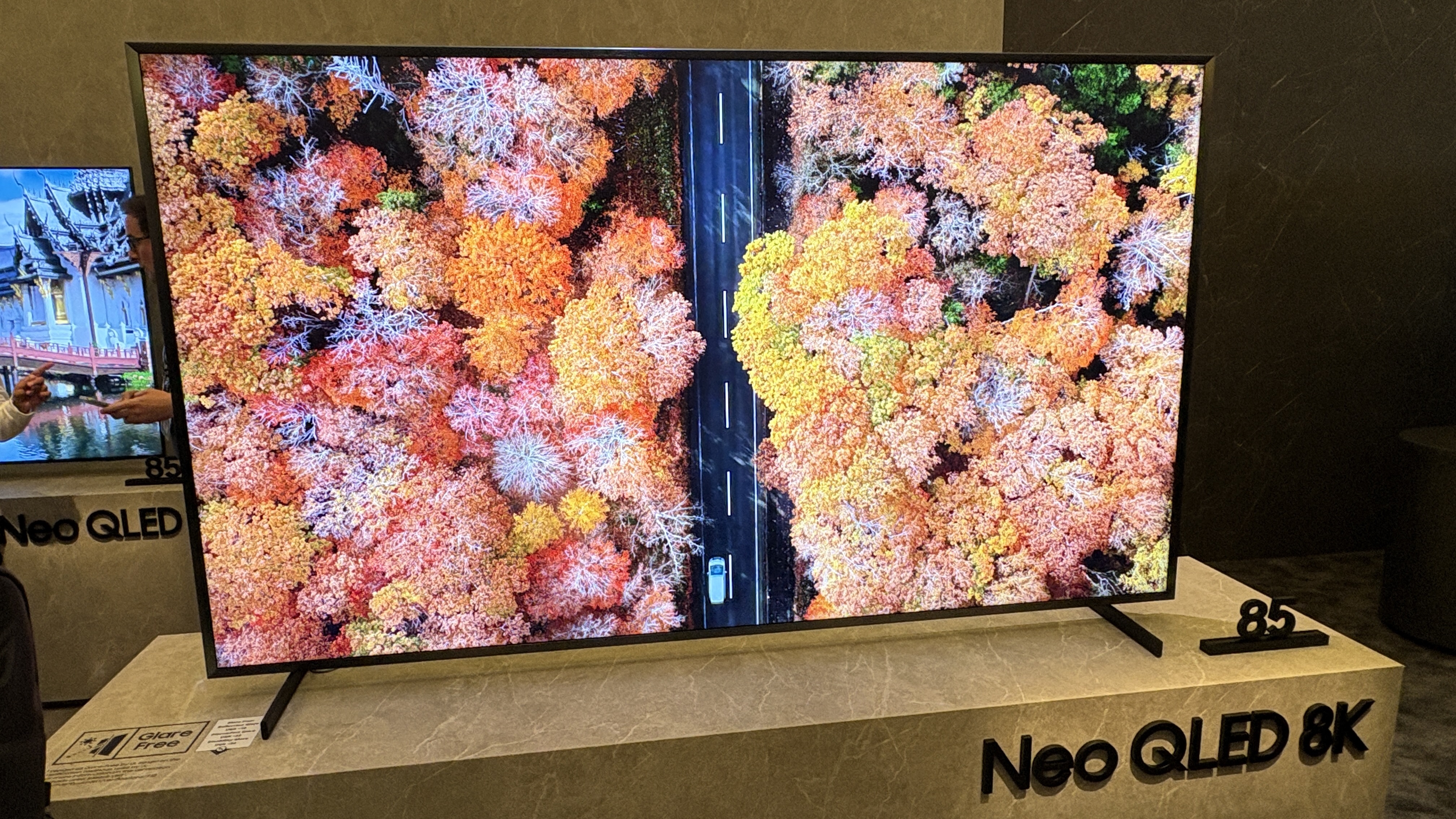
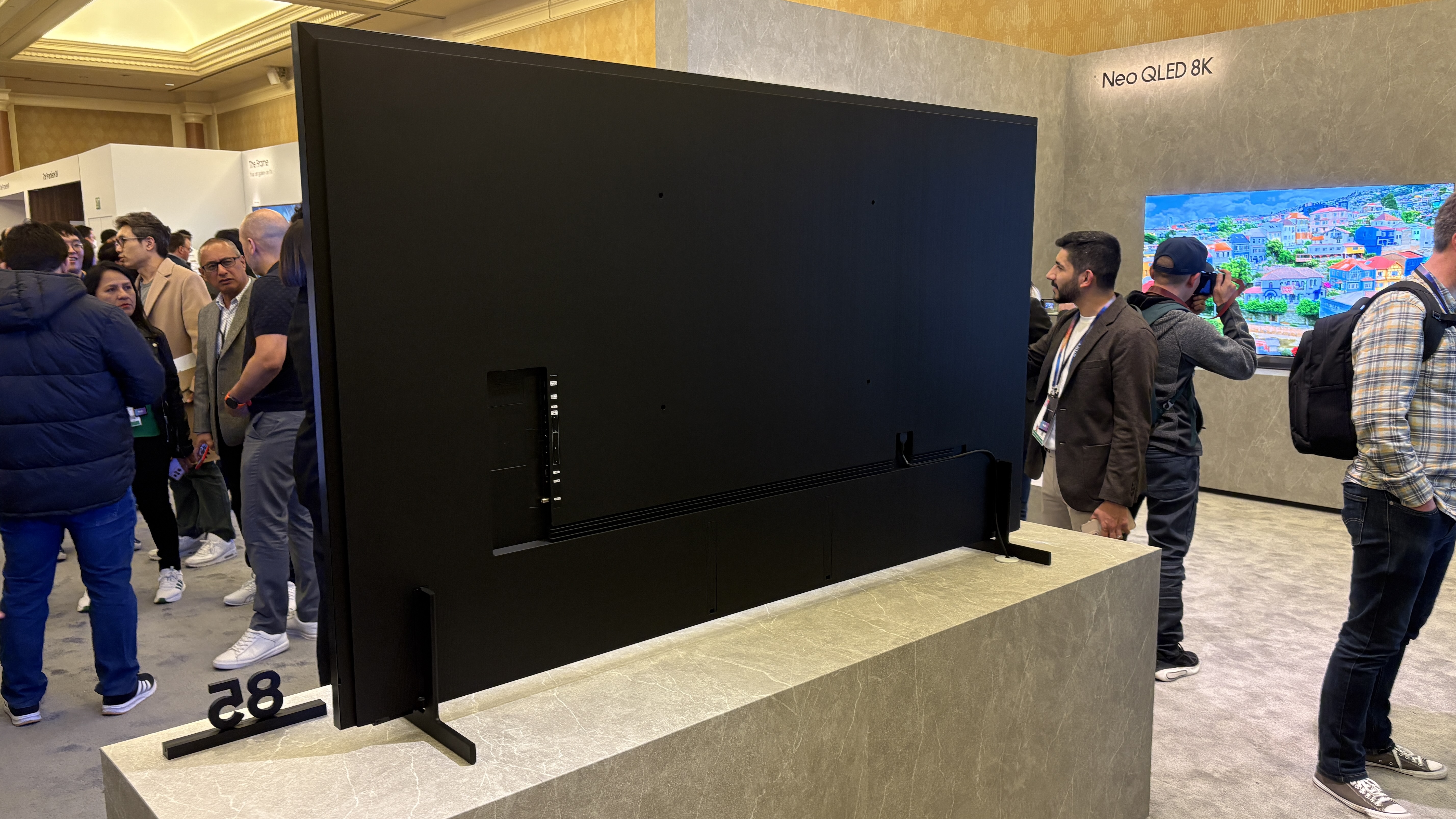
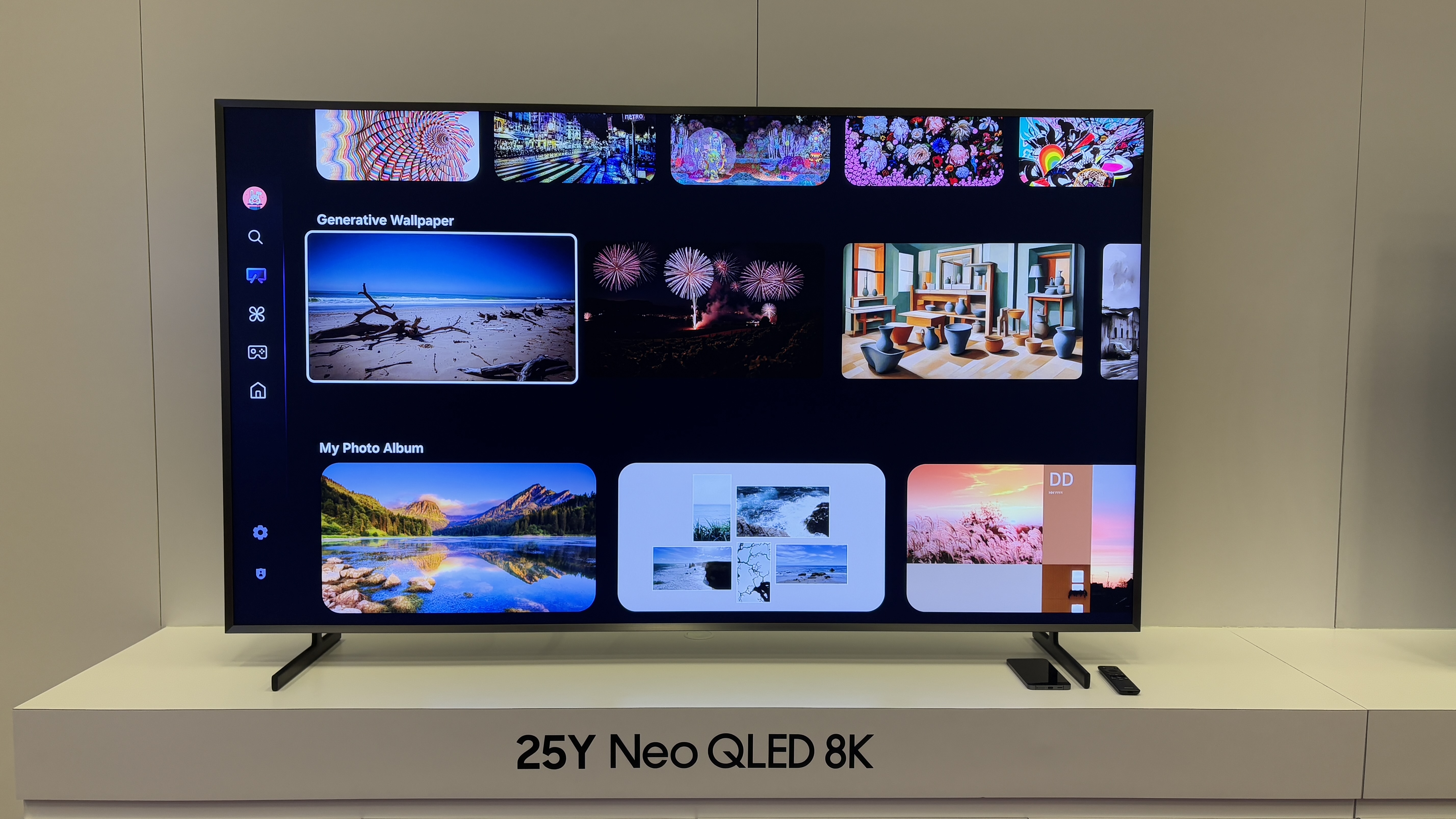
Do not adjust your set, I really am about to explain why this new 8K TV is one of my favourite new models on show at CES. While the lack of dedicated content is still a valid concern with 8K, Samsung’s impressive AI-driven picture upscaling has made this an easier pill to swallow. In the brief demonstrations where I’ve seen this TV in action, it’s looked remarkably sharp, bright and engaging. It has a handful of upgrades over its predecessor, including the effective Glare Free screen feature that has migrated its way over from Samsung’s flagship OLED TV and into the 4K and 8K Neo QLED range.
That being said, this is still the step-down model from the flagship QN990F; so why did I pick it over that flashier model? There are a few reasons, one of them being the suave new metal chamfered bezel design that, to my eye, looks much nicer than the samey-looking QN990F. It’s also a fairly noticeable upgrade over its predecessor – Samsung had the 2024 and upcoming 2025 models side by side in its behind-closed-doors demo – with improved detail levels and image depth leading the charge.
It’s also refreshing to see a TV manufacturer pay some attention to a non-flagship model, as these tend to be the most popular tier in a TV lineup, hence why the QN900F is a CES highlight in my books.
3. LG OLED Signature T
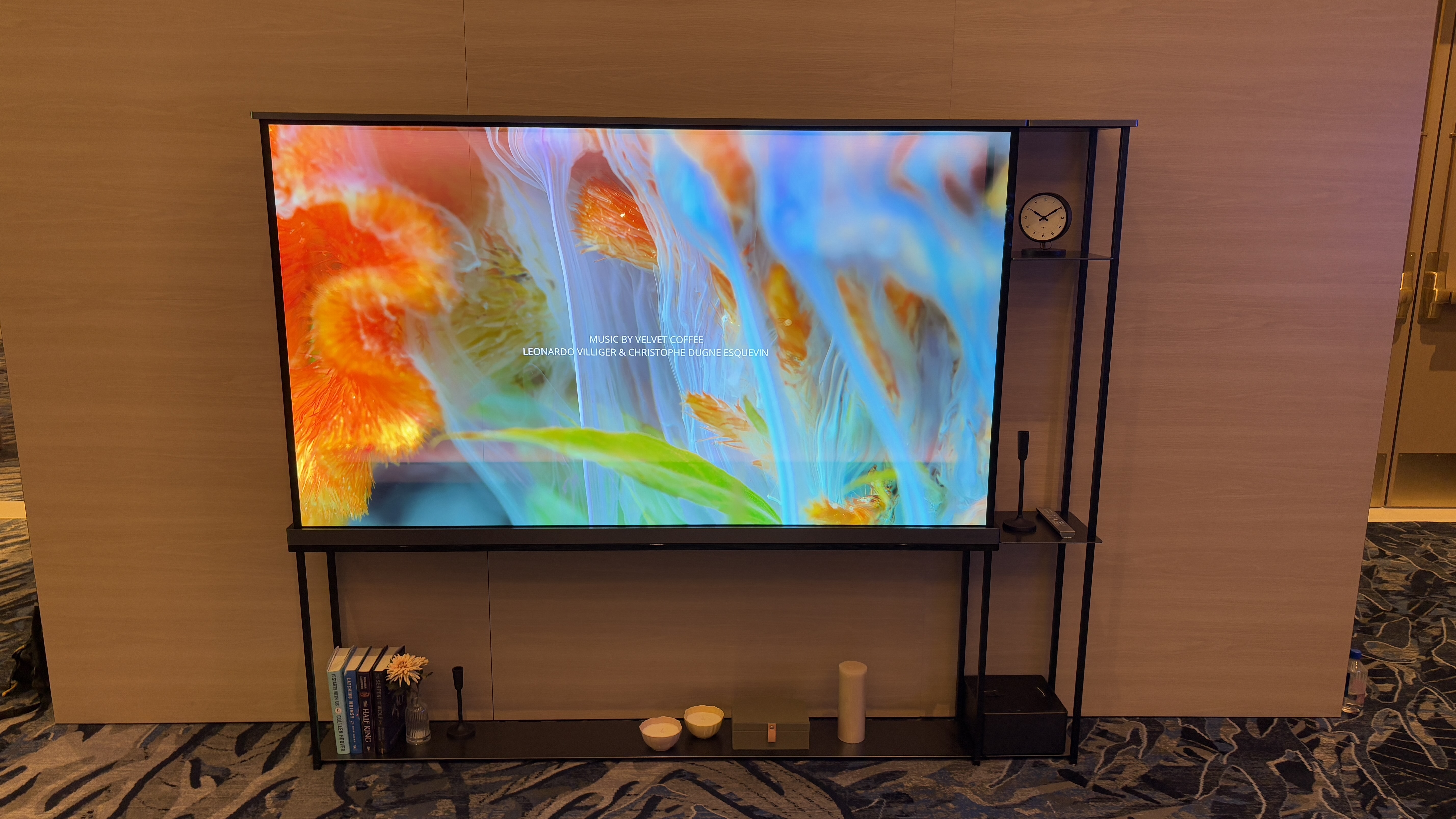
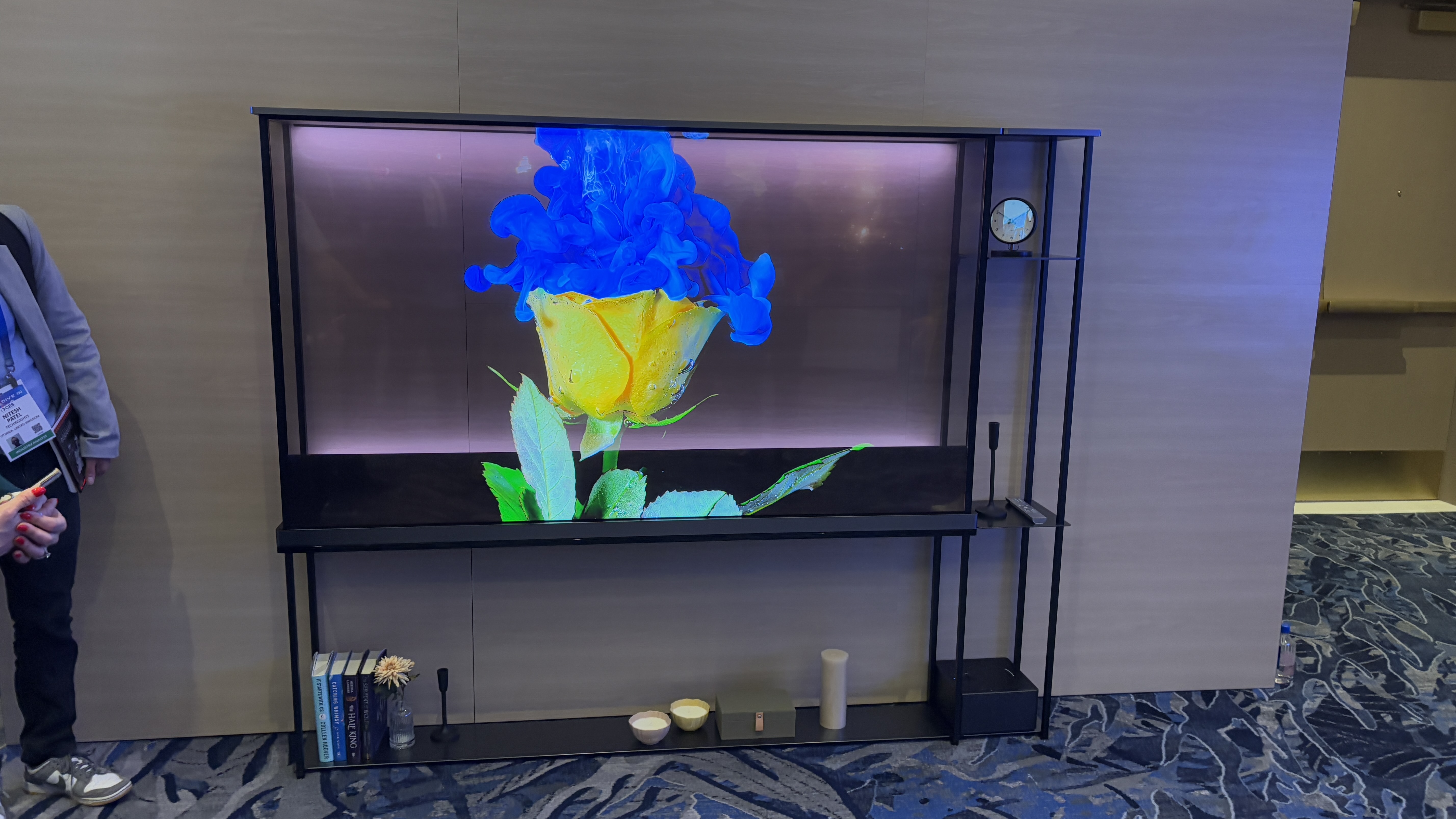
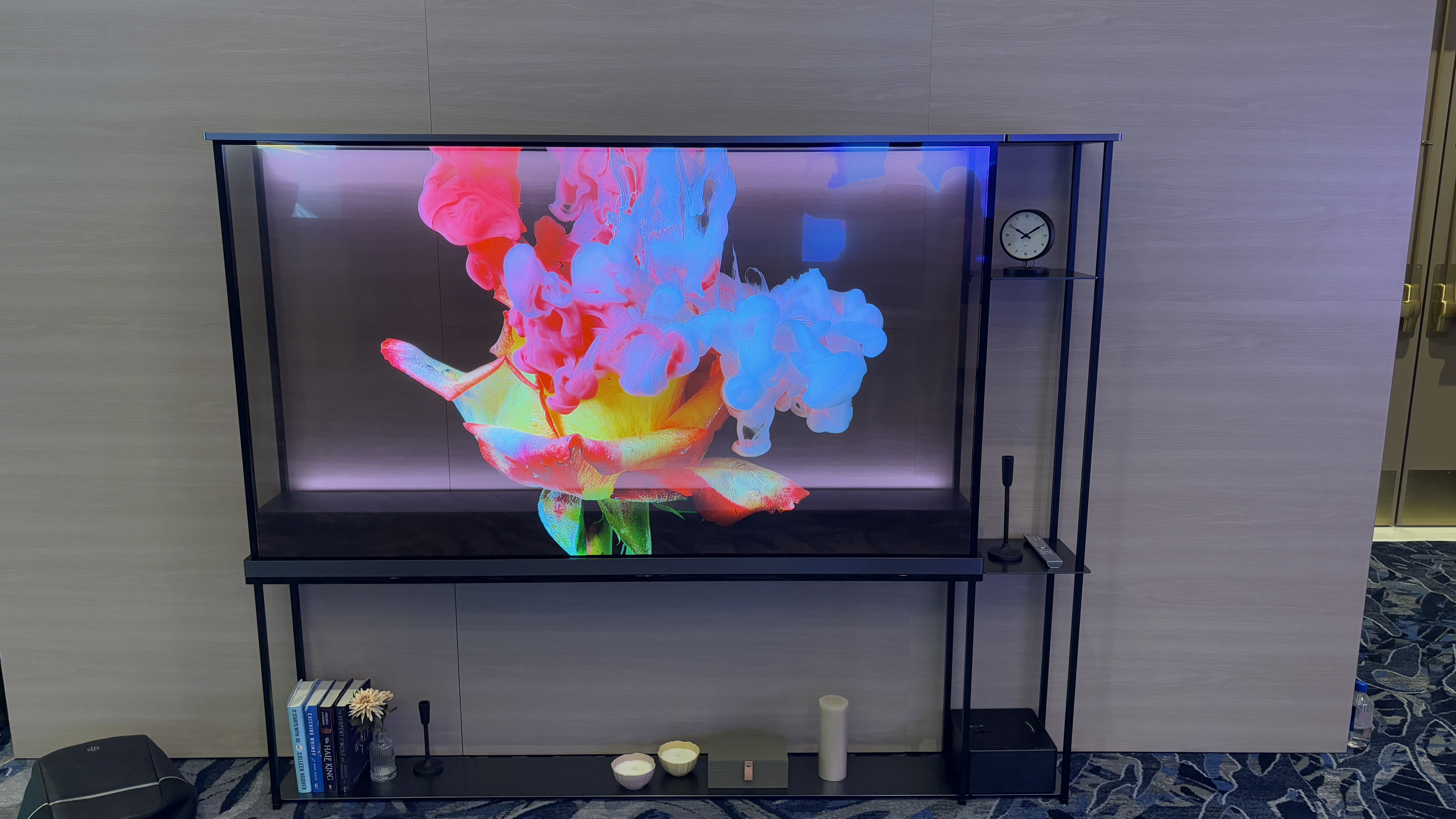
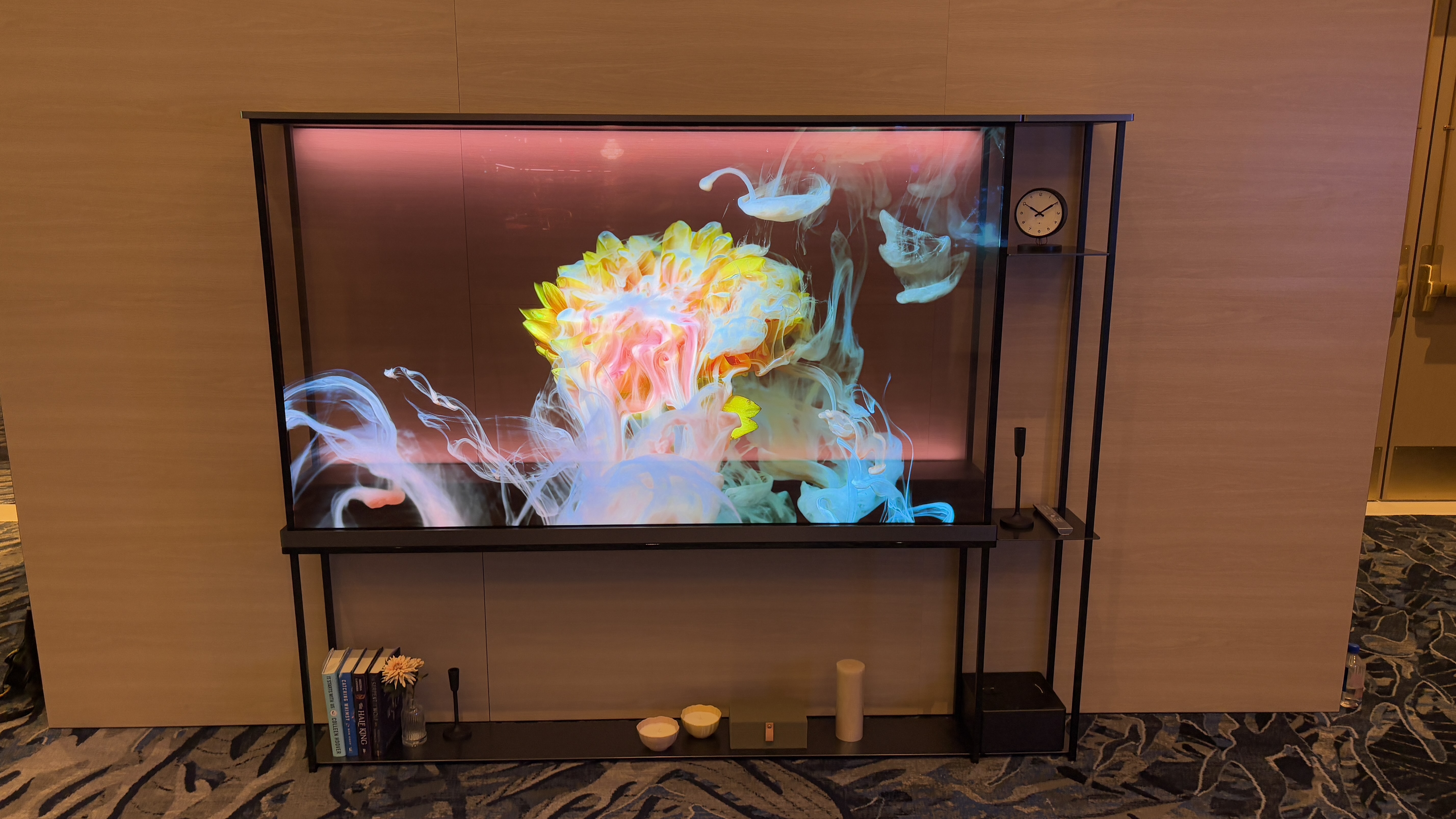
I’m cheating slightly with this one, as the OLED T from LG was announced at last year’s CES showcase. However, these are the TVs that I’ve seen personally, and this was the first time coming into contact with the futuristic transparent TV.
Now, is it gimmicky, expensive and compromises picture quality for the sake of a cool party trick? Yes. Do I also think it's a testament to the advancements of panel technology and, in simpler terms, is really cool to look at? Also yes. The OLED T won’t compete with the fully featured OLEDs from the rest of LG’s new lineup if you’re after the best picture performance, but it sort of doesn’t need to.
It just needs to look cool in an affluent individual’s home, and it does that with ease. Watching virtual fish float around in suspended, gravity-defying animation is a treat, and waving my hand around behind said virtual aquarium will never get old.
4. TCL QM7K
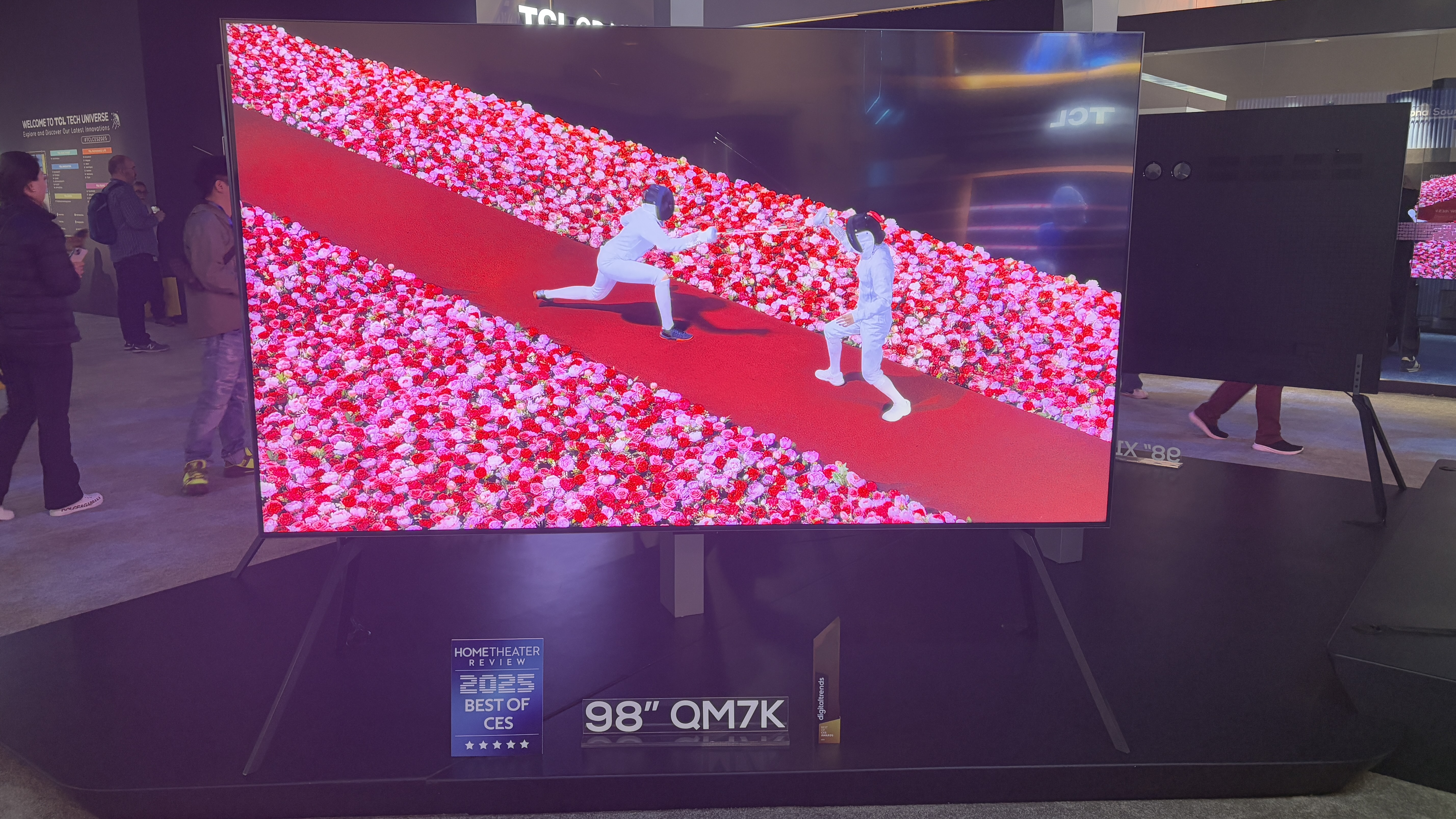
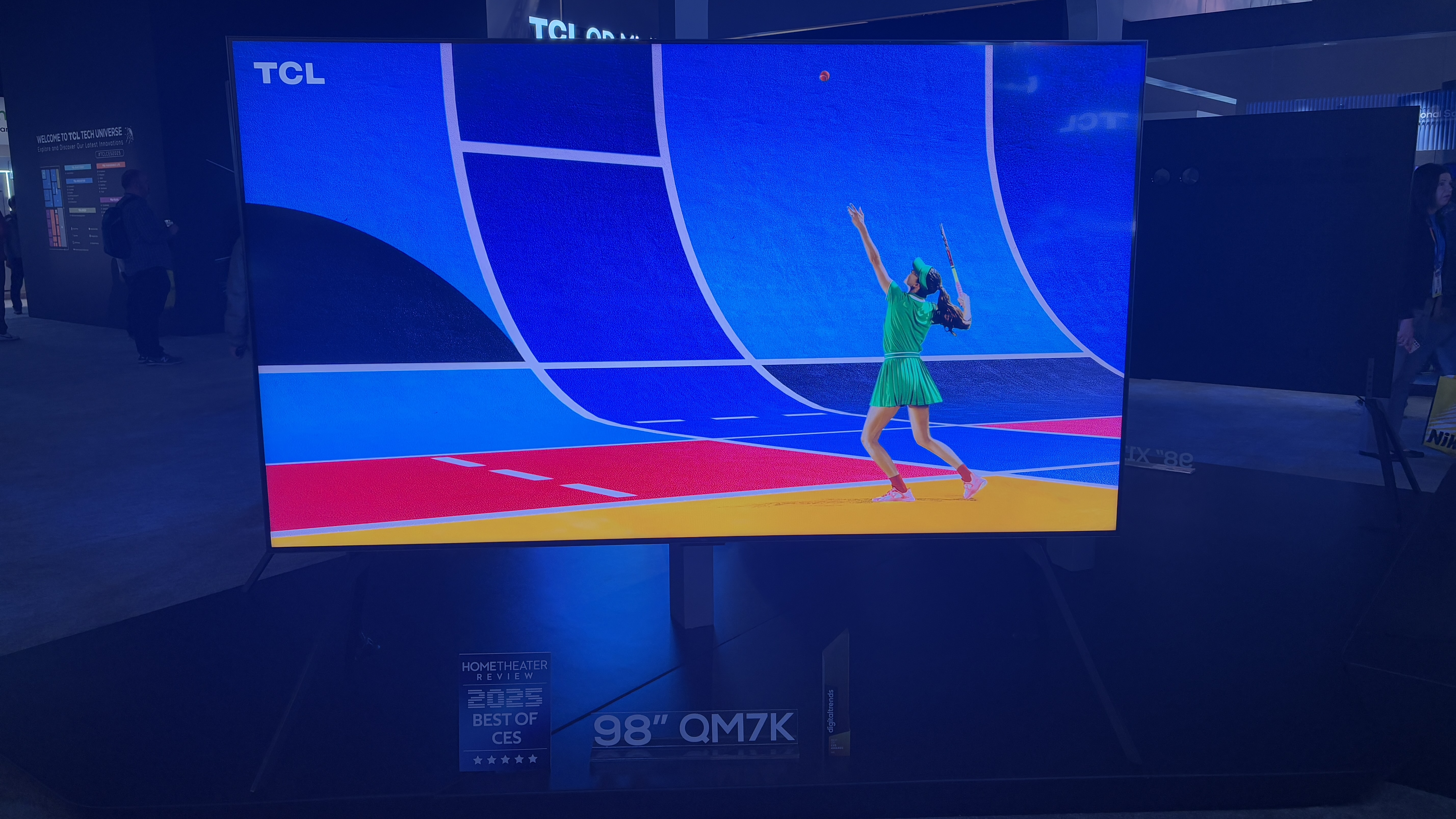
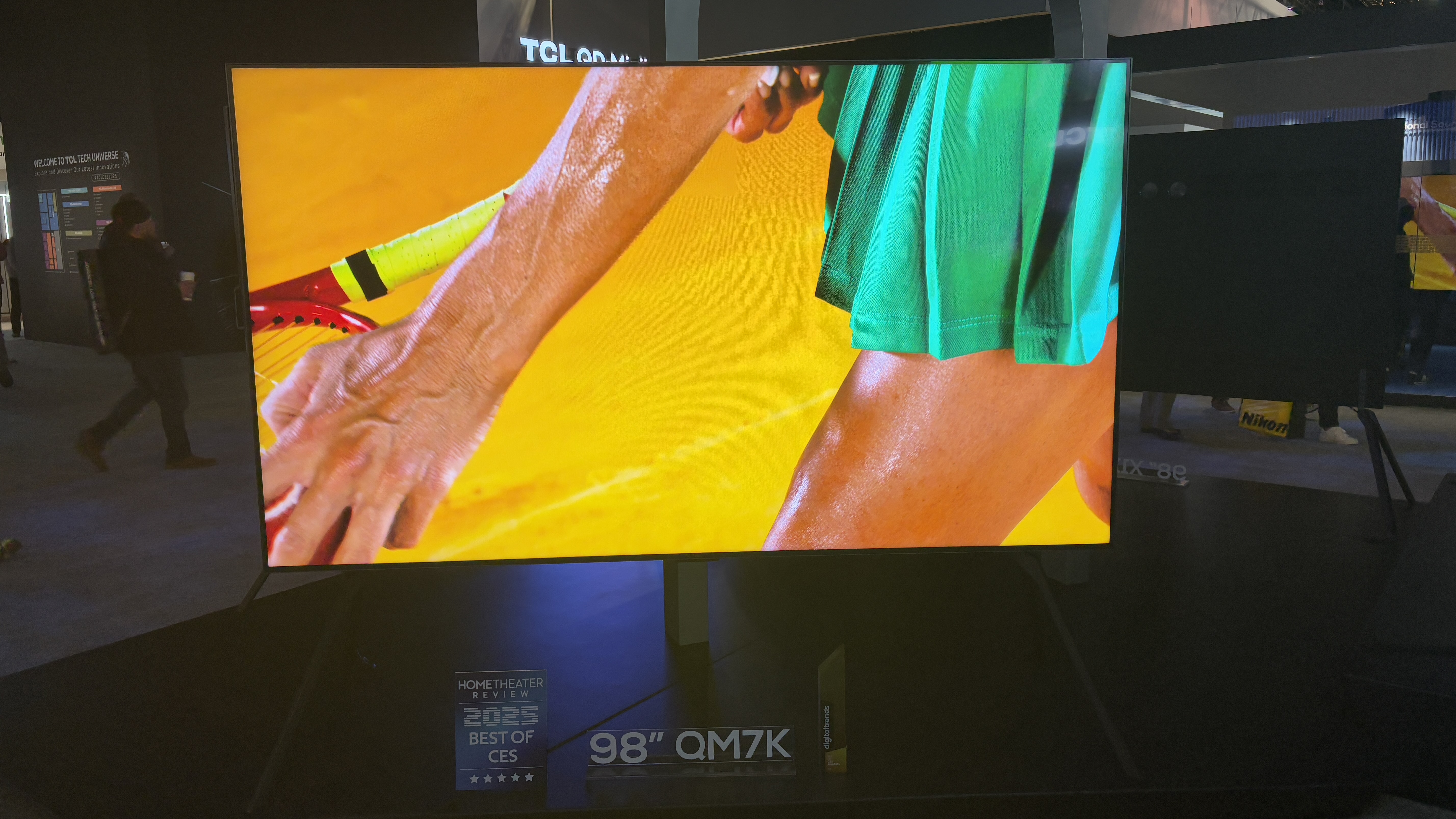
TCL celebrated CES 2025 with a range of Mini LED upgrades across its North American lineup, and we hope that the company will bring them across the pond later this year. One of the new models in the range in particular caught my eye due to its comprehensive spec sheet and dazzling demo performance.
The QM7K – also referred to as the C7K at the TCL booth, which might hint towards a European launch down the line – features up to 2500 dimming zones, a claimed 3000 nits peak brightness, and a Bang & Olufsen sound system. All of that sounds rather promising, and considering it comes in sizes ranging from 50- to a whopping 115-inches, it’s also pretty versatile.
TCL has seemingly put a lot of work into reducing the pitfalls of Mini LED with the introduction of its Precise Dimming Series. That includes addressing the halo effect (which occurs when bright objects appear on dark backgrounds) with its new All-domain Halo Control Technology. The super-sized 98-inch variant I saw in action looked bold, punchy and superbly bright, while also sporting impressively deep blacks.
5. Hisense MicroLED
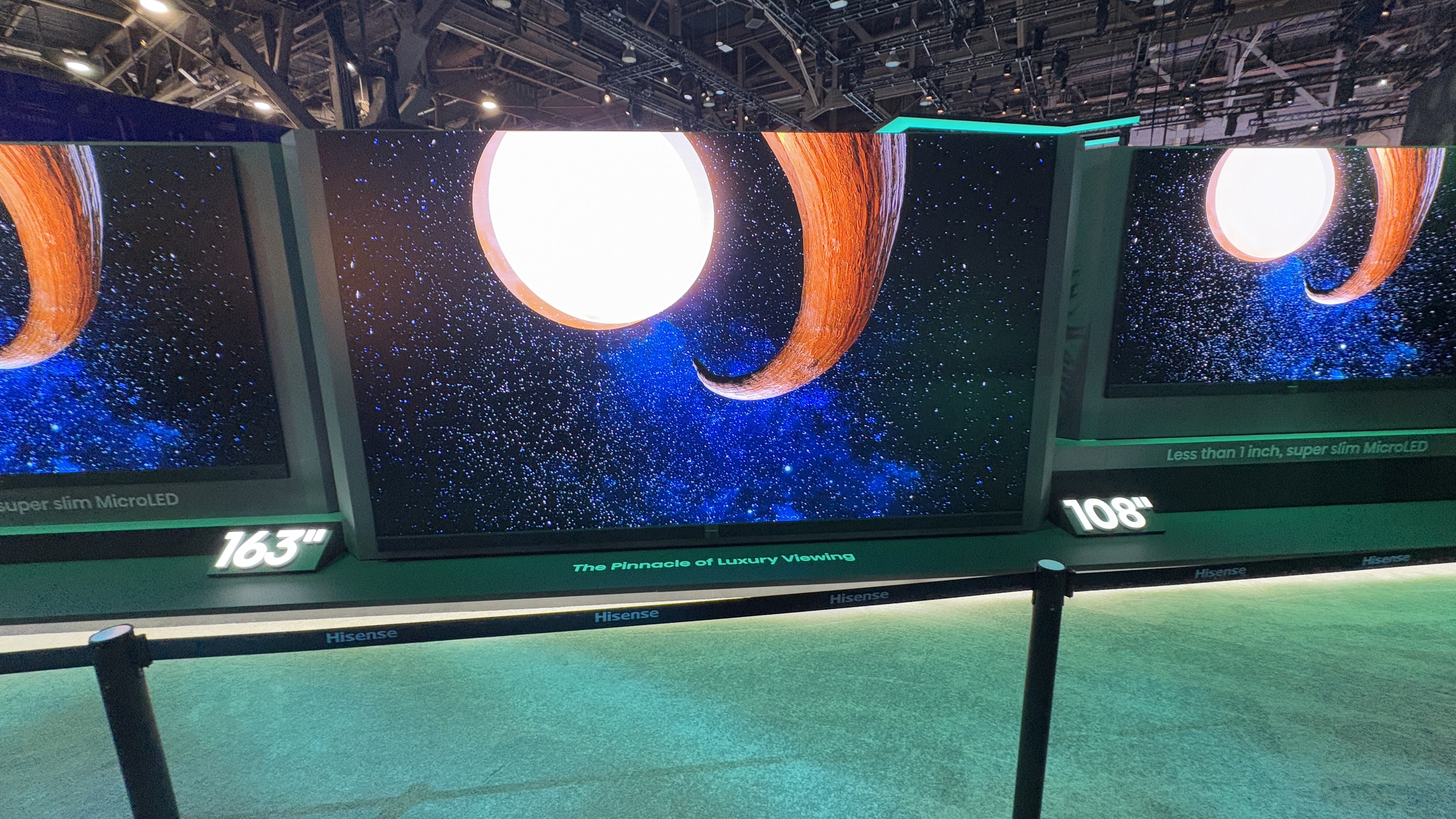
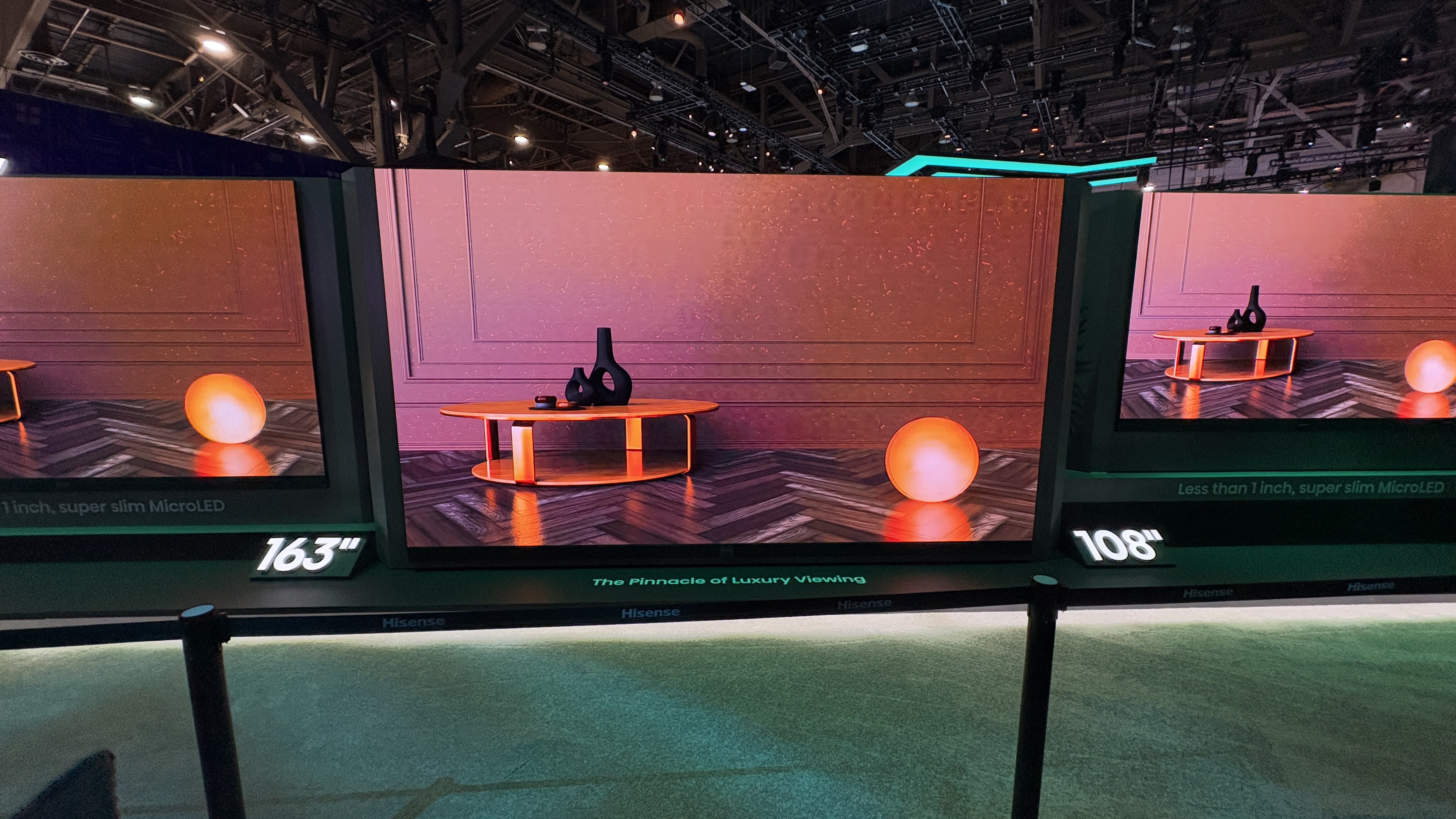
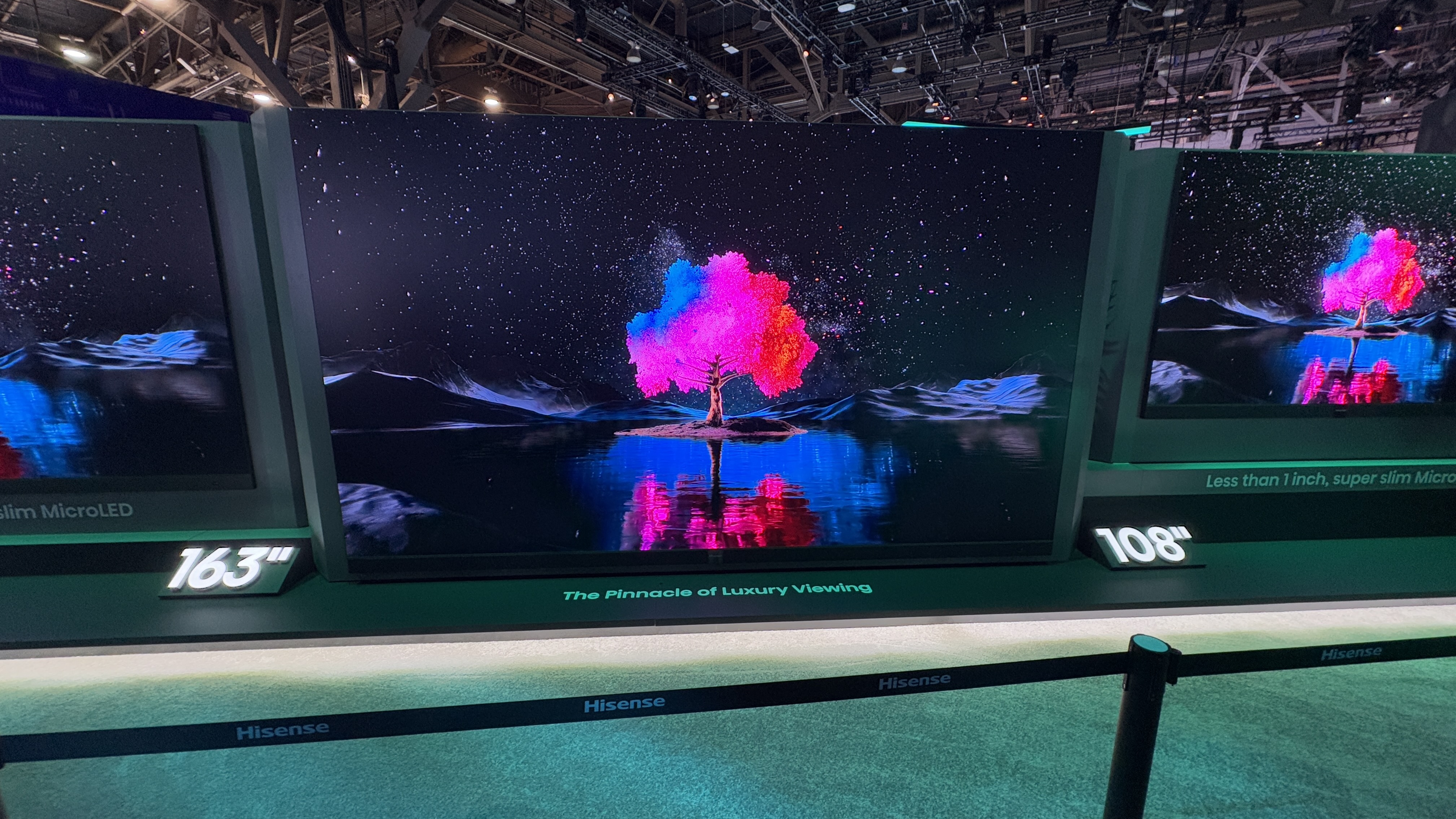
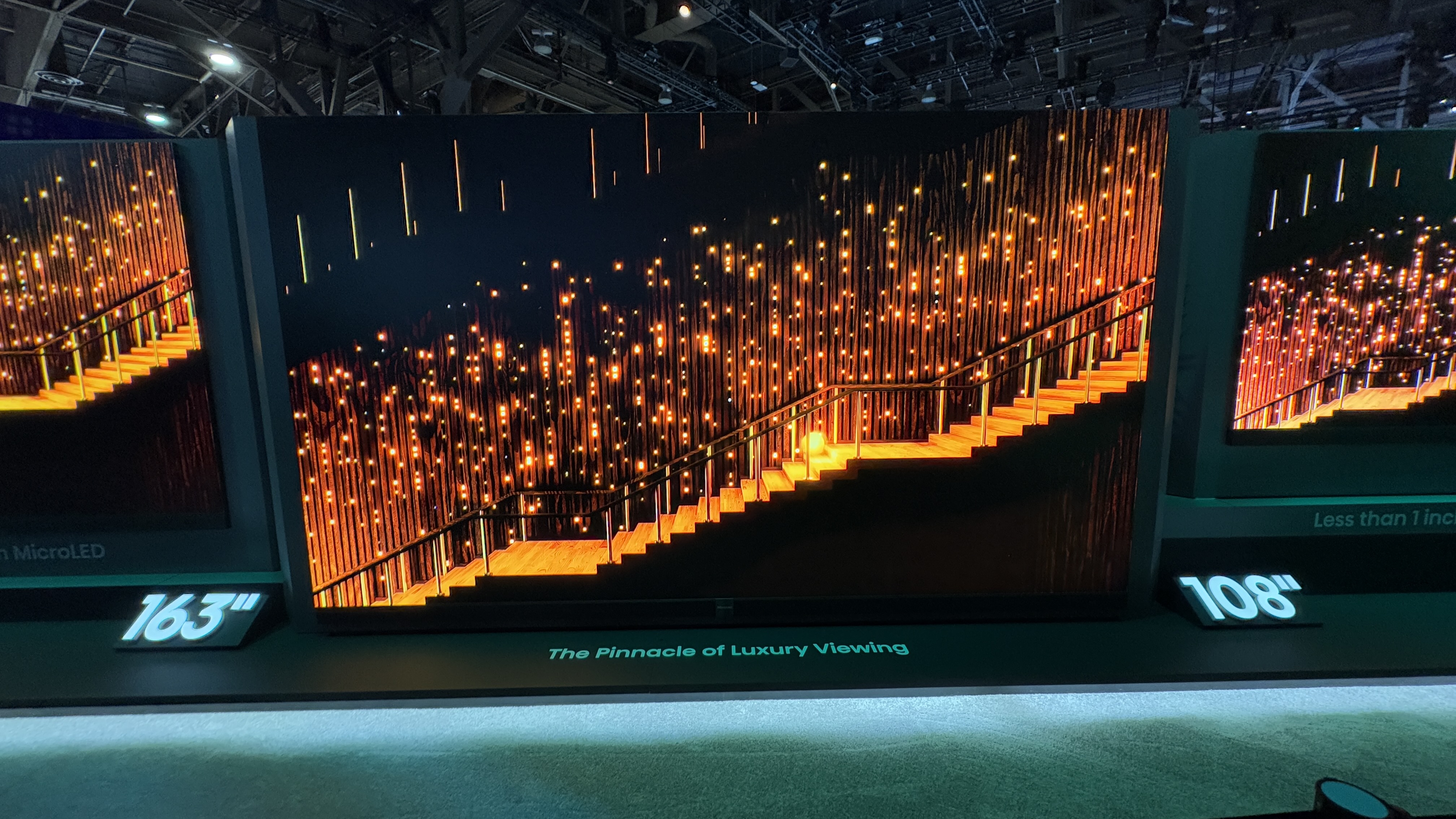
Is MicroLED finally ready for the mainstream? Hisense seems to think so, as it will release its commercially available 136-inch model later this year for a suggested price of $20,000 (around £16,000 / AU$32,500); while that’s still a considerable amount, that undercuts Samsung’s The Wall MicroLED model. The company also showed off a larger 163-inch flagship concept and a smaller (if you can call it that) 108-inch version.
While specifications for this TV were scarce on the show floor, it makes this list on the basis of that it could finally be the nudge for MicroLED that we’ve all been waiting for. Hisense has a solid track record of bringing high-end features down to more accessible price points, so seeing it pioneer the long-awaited move to bring MicroLED into the mainstream is cause for excitement.
MORE:
Read the latest CES 2025 announcements here
Read our Samsung S95F hands on review
As well as our LG C5 hands on review
Lewis Empson is a Senior Staff Writer on What Hi-Fi?. He was previously Gaming and Digital editor for Cardiff University's 'Quench Magazine', Lewis graduated in 2021 and has since worked on a selection of lifestyle magazines and regional newspapers. Outside of work, he enjoys gaming, gigs and regular cinema trips.
-
Dave_ As someone who previously worked on a student and lifestyle magazines and regional newspapers what qualifies you as an "AV expert" out of curiosity?Reply
Because if you're going to write hyperbolic, click-baity headlines and articles you should at least be able to back it up
Working for a Future owned click-bait generator certainly doesn't, in my view! -
R2D2 Reply
To be honest though they used to call all the members on here experts too! :)daveh75 said:As someone who previously worked on a student and lifestyle magazines and regional newspapers what qualifies you as an "AV expert" out of curiosity?
Because of you're going to write hyperbolic, click-baity headlines and articles you should at least be able to back it up
Working for a Future owned click-bait generator certainly doesn't, in my view!
They still do if you have a question our experts have answers:
https://forums.whathifi.com/ -
simontompkins Thank you for the article. I really enjoyed it's enthusiasm and that it gives a good overview of the products you write about.Reply
